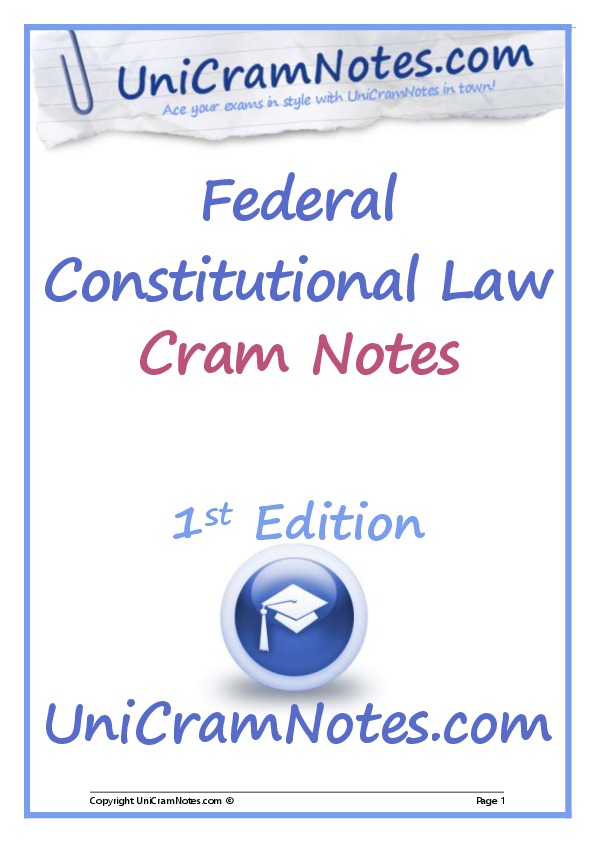7. DOES THE LAW FALL WITHIN THE DEFENCE POWER? Section 51(vi) provides a Cth power with respect to: “The naval and military defence of the Cth. and of the several States, and the control of forces to execute and maintain the laws of the Cth.” Note: This is a purposive power. A. THE DEFENCE POWER DISTINGUISHED FROM OTHER POWERS The principles from Andrews v Howell (1941) and Stenhouse v Coleman (1944): – Elusiveness of other facts and the court’s role: the executive and legislature may have confidential facts that cannot be disclosed to courts but will be essential in determining proportionality of legislation. – Elasticity: the power waxes and wanes. o “The existence and character of hostilities or a threat of hostilities, against the Cth. are facts which will determine the extent of the operation of the power” (Andrews v Howell).
The most concise and updated Federal Constitutional Law Study Notes for Australian Law Students.
Includes Model Exams and Model Exam Answers.
(Click here to purchase just the Notes)
Approximately 24138 words over 55 pages. Prepared in 2025.










